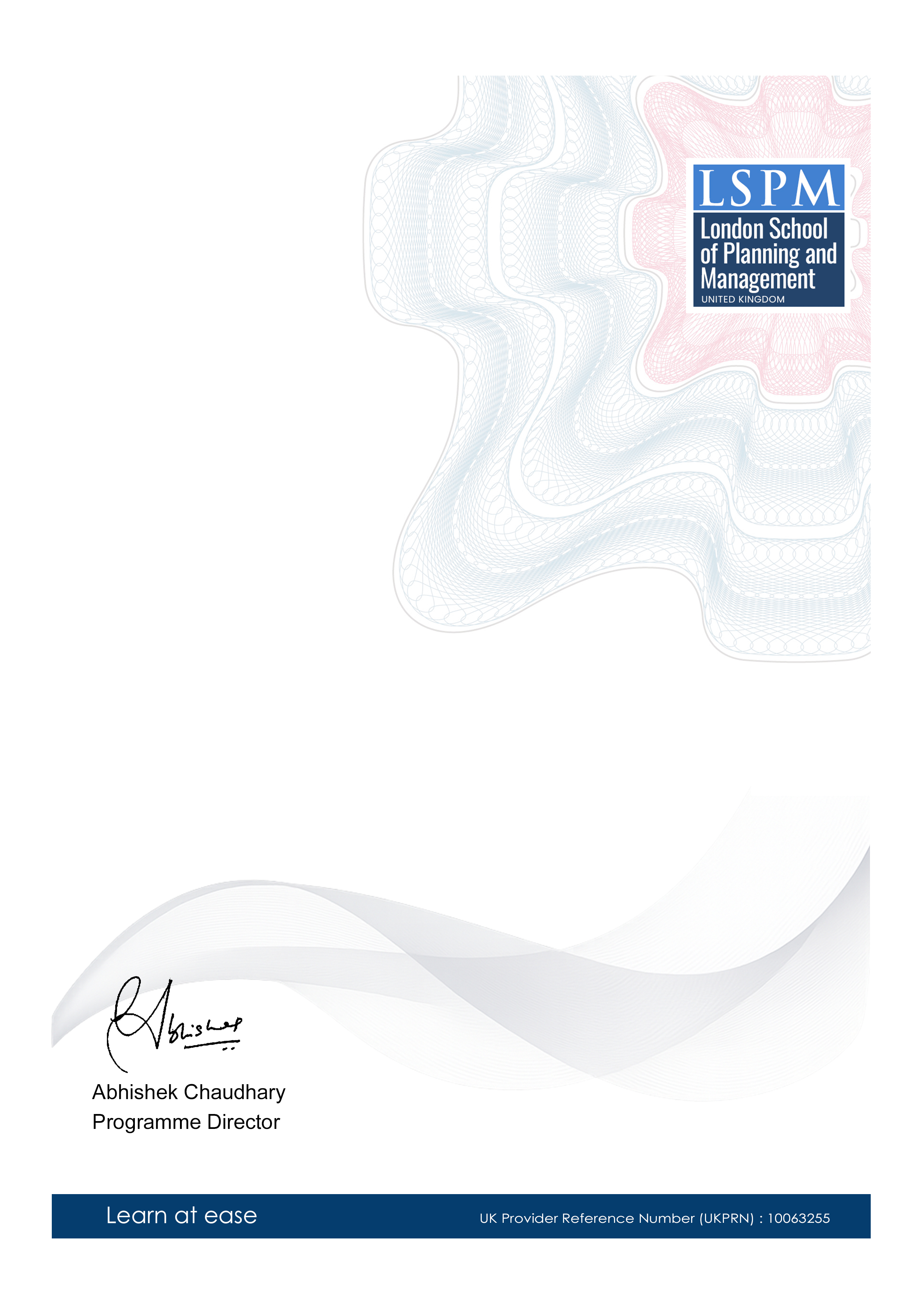Executive Certificate in Solidarity and Humanitarian Aid
-- viewing nowThe Executive Certificate in Solidarity and Humanitarian Aid is a comprehensive course designed to empower learners with essential skills for managing humanitarian crises. This program is critical in today's world, where natural disasters, conflicts, and pandemics regularly threaten global security and well-being.
7,995+
Students enrolled
GBP £ 149
GBP £ 215
Save 44% with our special offer
About this course
100% online
Learn from anywhere
Shareable certificate
Add to your LinkedIn profile
2 months to complete
at 2-3 hours a week
Start anytime
No waiting period
Course details
Here are the essential units for an Executive Certificate in Solidarity and Humanitarian Aid:
• Principles of Solidarity: Understanding the concept of solidarity and its importance in humanitarian aid. Exploring the relationship between solidarity and social justice.
• Disaster Response and Management: Introduction to disaster response and management in the context of humanitarian aid. Topics may include disaster risk reduction, emergency preparedness, and response strategies.
• Humanitarian Law and Ethics: Overview of the legal and ethical frameworks that govern humanitarian aid. Topics may include international humanitarian law, human rights law, and ethical decision-making.
• Project Management for Humanitarian Aid: Best practices for managing humanitarian aid projects, including needs assessment, planning, implementation, monitoring, and evaluation.
• Financial Management in Humanitarian Aid: Understanding the financial management principles and practices that are relevant to humanitarian aid organizations, including budgeting, accounting, and financial reporting.
• Cultural Competence and Diversity in Humanitarian Aid: Developing cultural competence and understanding the importance of diversity in humanitarian aid. Topics may include cultural awareness, communication across cultures, and cultural humility.
• Psychosocial Support in Humanitarian Aid: Understanding the psychosocial needs of people affected by crises and the role of psychosocial support in humanitarian aid. Topics may include trauma-informed care, mental health first aid, and self-care for aid workers.
• Monitoring and Evaluation in Humanitarian Aid: Introduction to monitoring and evaluation in humanitarian aid, including the use of indicators, data collection, and analysis. Topics may also include the importance of learning and adaptation in humanitarian aid.
Career path
Entry requirements
- Basic understanding of the subject matter
- Proficiency in English language
- Computer and internet access
- Basic computer skills
- Dedication to complete the course
No prior formal qualifications required. Course designed for accessibility.
Course status
This course provides practical knowledge and skills for professional development. It is:
- Not accredited by a recognized body
- Not regulated by an authorized institution
- Complementary to formal qualifications
You'll receive a certificate of completion upon successfully finishing the course.
Why people choose us for their career
Loading reviews...
Frequently Asked Questions
Course fee
- 3-4 hours per week
- Early certificate delivery
- Open enrollment - start anytime
- 2-3 hours per week
- Regular certificate delivery
- Open enrollment - start anytime
- Full course access
- Digital certificate
- Course materials
Get course information
Earn a career certificate

